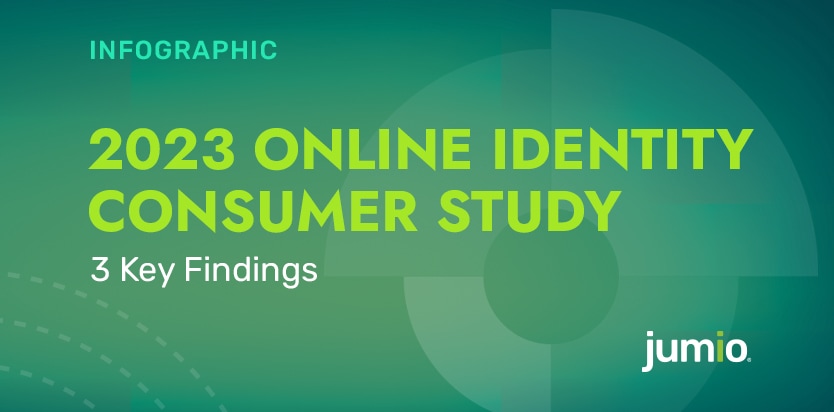
Generative AI has captured the imagination of millions worldwide, largely driven by the recent success of ChatGPT, the text-generation chatbot. While there are many potential benefits when it comes to this technology, in the wrong hands it also serves as a powerful weapon for taking cybercrime to a whole new level through the creation of highly convincing deepfakes — content, images, video and audio that are not real.
With all eyes on ChatGPT, Jumio set out to uncover consumer sentiments around generative AI and the risks this technology poses to online security.
Conducted by Censuswide, the Jumio 2023 Online Identity Study reveals an understanding among consumers around how generative AI and deepfake technologies could accelerate identity fraud, and the subsequent need for digital identities for online verification and authentication. But it also suggests that consumers overestimate their ability to detect deepfakes, which can render them vulnerable to attack.
The following infographic highlights key findings from Jumio’s research:
[Text Version]
Jumio 2023 Online Identity Consumer Study
About the Global Study
Conducted by Censuswide, the Jumio 2023 Online Identity Study reveals an understanding among consumers around how generative AI and deepfake technologies could accelerate identity fraud, and the subsequent need for digital identities for online verification and authentication.
Total Respondents
8,055 ADULT CONSUMERS
Split evenly
Sectors Studied:
Online Gaming and Gambling
Social Media
Sharing Economy
Retail/eCommerce
Telecoms
Mobility Services
Financial Services
Healthcare
Government
Travel/Hospitality
Top Findings
1. 67% of consumers are aware of generative AI technologies but they overestimate their ability to detect a deepfake video.
Over two thirds (67%) of consumers say they are aware of generative AI tools – such as ChatGPT, DALL-E and Lensa AI – which can produce fabricated content, including videos, images and audio.
52% of respondents believe they could detect a deepfake video.
Awareness of deepfake and generative AI technologies:
Global Average 67%
Singapore 87%
Mexico 63%
U.S. 62%
UK 56%
Net figures, with global figures representing findings for four polled markets.
“A lot of people seem to think they can spot a deepfake. While there are certainly tell-tale signs to look for, deepfakes are getting exponentially better all the time and are becoming increasingly difficult to detect without the aid of AI.” Stuart Wells, Chief Technology Officer, Jumio
2. 57% of consumers believe generative AI tools will make online identity theft easier.
Given the availability of generative AI tools, do you think online identity theft will become easier?
Global Average 57% Say Yes
Singapore 73% Say Yes
Mexico 62% Say Yes
U.S. 49% Say Yes
UK 43% Say Yes
Net figures, with global figures representing findings for four polled markets.
54% say facial recognition will be more valuable for identity verification because of generative AI tools and deepfake images.
3. Organizations have a responsibility to educate and better protect consumers and customers.
Consumers open to having a digital identity to verify their identity:
68% Global
78% Singapore
71% Mexico
62% U.S.
61% UK
Net figures, with global figures representing findings for four polled markets.
80% of consumers would spend more time on identity verification measures when accessing online financial services accounts if it improves security.
“Online organizations must look to implement multimodal, biometric-based verification systems that can detect deepfakes and prevent stolen personal information from being used. Encouragingly, our research indicated strong consumer appetite for this form of identity verification, which businesses should act on fast.” Philipp Pointner, Chief of Digital Identity, Jumio
GET THE FULL STORY
Visit jumio.com/2023-identity-study
Source: Jumio 2023 Online Identity Study: Global Consumer Research

